Japan vs China! Which is best to travel?
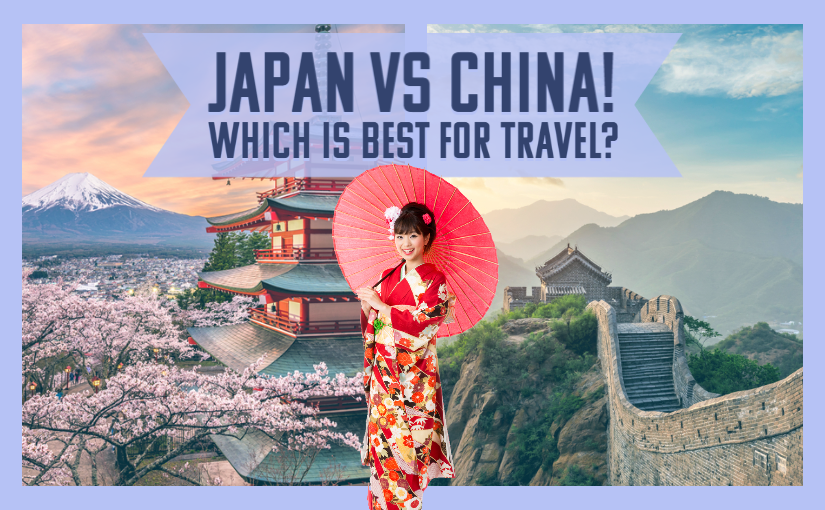
Leisure travel to the Asian subcontinent is becoming a much more popular option these days compared to the usual holiday choices like Hawaii or Jamaica. Research studies and statistics show that many travelers are heading east and exploring the lands of Asia. There are many Asian countries to explore and enjoy. Choosing between them can be a big challenge. Many Asian countries share some similarities, yet they all have their own unique lifestyles, cultures, and identities.
For an unforgettable Asian experience, Japan vs China is two terrific countries to visit. They both have a lot to offer, with each one having its advantages. If you’re trying to choose between them, we’re here to help. This guide will look at key aspects of China and Japan travel to help you make the right choice.
Key Takeaways from the article “Leisure Travel: Japan vs China – Which is the Better Country to Visit?” are:
- Rising Popularity of Asian Subcontinent: Leisure travel to the Asian subcontinent is becoming more popular compared to traditional holiday choices like Hawaii or Jamaica. Many travelers are exploring countries in Asia, with an emphasis on Japan and China.
- Diverse Asian Countries: There are many Asian countries with unique lifestyles, cultures, and identities. Choosing between them can be a challenge as they offer both similarities and differences.
- Japan vs China Travel: Japan and China offer unique experiences, and both have their own advantages. The article provides a comparison of various aspects of travel in these two countries to help readers make an informed choice.
- Population and Size: China is the world’s most populous country, with over 1.4 billion people, while Japan has about 125 million people. China is also much larger in terms of physical size.
- Attractions in Japan: Japan is known for its historic temples, modern cities like Tokyo, and diverse landscapes, including beaches and snow-capped mountains. It offers a blend of tradition and modernity.
- Attractions in China: China boasts iconic landmarks such as the Great Wall and the Terracotta Army, along with a rich cultural heritage, diverse regional cuisines, and picturesque landscapes.
- Travel Costs: China tends to be more budget-friendly for travelers, with lower daily travel costs compared to Japan. Accommodation, food, and transportation are generally cheaper in China.
- Accommodation: Accommodation options in China include budget hotels and hostels, with a variety of choices in big cities. Japan offers a mix of traditional and Western-style accommodations, including ryokans and hotels.
- Weather and Best Time to Visit: China’s vastness allows for diverse climates, with warm and sunny regions in the south and cold winters in the northeast. Japan has four distinct seasons, with cherry blossom season in April being popular but crowded.
- Public Transportation: Japan is known for its efficient public transportation, including bullet trains, while China has both conventional and high-speed trains, as well as cheap domestic flights.
- Beautiful Places: Both countries have beautiful natural and cultural sites to explore. Japan offers serene temples, iconic Mount Fuji, and bustling Tokyo. China features water towns, the Huangshan Mountain, and the Great Wall.
- Safety: Both countries are generally safe for travelers, with low tourism-related crime rates. Japan has a lower overall crime rate compared to China.
- Cultural Immersion: Both countries offer unique cultural experiences. China’s vastness provides diverse cultural encounters, while Japan’s smaller size allows for a deeper dive into specific aspects of its culture.
- Festivals: Both countries have vibrant festivals. In Japan, the Gion Matsuri and Sapporo Snow Festival are notable, while China’s Chinese New Year celebrations and Lantern Festival are must-see events.
- Language and Communication: English is spoken in major tourist areas in both countries, but learning basic local phrases can enhance your experience.
- Packing and Cultural Etiquette: Each country has its own customs and traditions to be aware of, such as blowing your nose in public being considered rude in Japan. Packing for weather variations and respecting local customs is important.
- Overall Budget and Value: China tends to offer better value for travelers on a budget, with lower costs for food, accommodation, and activities compared to Japan.
- Choosing Between Japan and China: The decision between Japan and China as a travel destination depends on personal preferences, interests, budget, and the type of experiences you seek.
Remember that the choice between Japan and China ultimately depends on your individual preferences and what kind of travel experience you’re seeking. Both countries offer unique and enriching opportunities for exploration and discovery.
What are some similarities and differences between China vs Japan?
China is the world’s most populous country. It’s home to an astonishing total of over 1.4 billion people. Japan, meanwhile, is home to about 125 million people. China is about 25 times larger than Japan in terms of physical size.
This means that there’s a lot more ground to cover and places to explore in China. But size isn’t everything. Japan might be smaller, but it’s still an extraordinary place. Known as ‘The Land of the Rising Sun’, Japan is home to historic temples and modern cities.
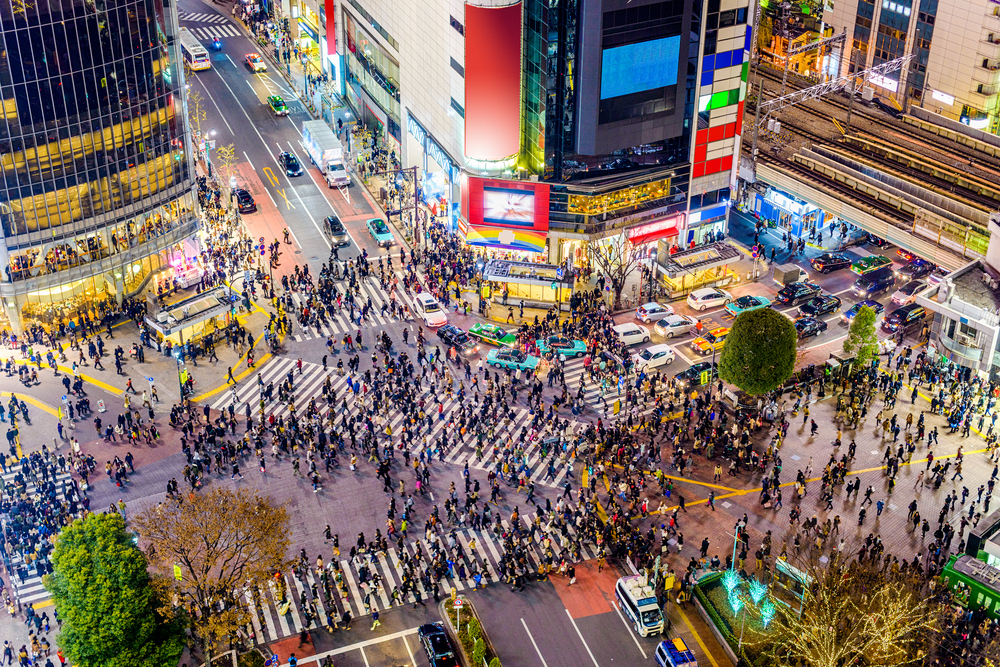
Japan, is home to about 125 million people
Sitting in the Pacific Ocean and made up of several islands, Japan is a rich, varied, vibrant destination. It’s a place where you can feel like you’ve teleported into the future as you explore the streets of Tokyo. The very next day, you can travel back to the past and take a tour of the country’s old shrines and castles.
China is also a place that fuses both the old and the new. It has some of the oldest and most awe-inspiring temples and ancient sites around. Equally, it has lots of modern, almost futuristic cities like Shanghai and Beijing.
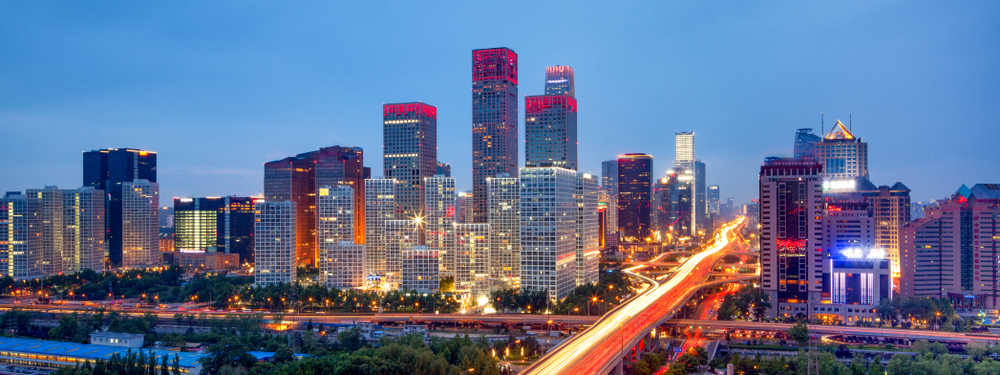
China is the world’s most populous country
Both of these countries share some similarities. They both honor the past and embrace the future. They can both appeal to a wide range of travelers. And they can both make your nomadic vacation dreams come true.
How much would it cost to travel to Japan vs China? Is Japan expensive? Is China expensive?
| China | Japan |
|---|---|
| 1 USD = 6.48 Chinese Yuan | 1 USD = 104.23 Japanese Yen |
| More cost-conscious vacation destination | Travel costs are almost double compared to China |
| Average daily costs are $50 – $60 (USD) | Average daily costs are $100 (USD) upwards |
The first thing many people think about when planning a trip is the budget. For some, money is no object. But for most people, money matters when traveling. Many people need to plan vacations with care to ensure they can afford everything. So how do Japan vs China compare when it comes to costs?
Well, if money is the number one factor for you, China is the best choice. Japan is quite an expensive place to travel to. In fact, general daily travel costs in Japan can be about twice as high as what you would expect to pay in China.
Accommodation is more expensive in Japan, with minimum hotel rates of around $60 per night. In China, you can find a hotel at half that price. Food is also more expensive in Japan on average. However, both countries have a lot of street food vendors offering cheap and tasty treats.
A bottle of water costs almost twice as much in Japan and public transport is more expensive too. All in all, average daily costs in Japan are upwards of $100 per traveler. In China, you can probably spend about $50-60 per day and still have a great time.
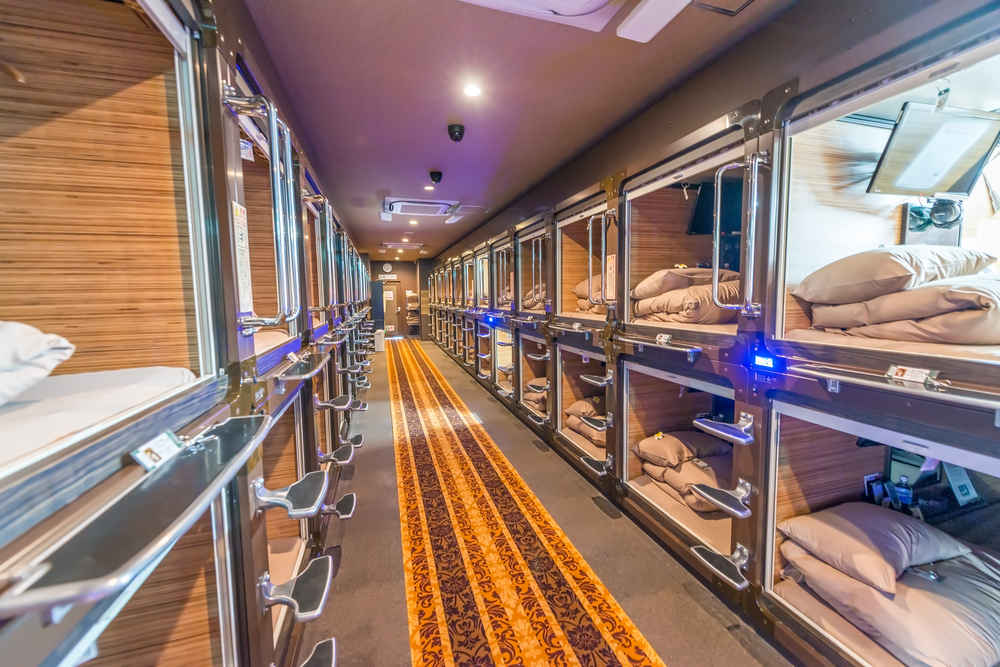
Are hotels nicer in China vs Japan? Are hotels more cost-effective in China?
| China Highly rated hotels according to Booking.com are: | Japan Highly rated hotels according to Booking.com are: |
|---|---|
| The Langham, Shanghai, Xintiandi | Hiyori Hotel Osaka Namba Station |
| New World Beijing Hotel | Mitsui Garden Hotel Kanazawa |
| Lan Hotel (Kuanzhai Alley) | The Thousand Kyoto |
| Four Seasons Hotel Guangzhou | TSUGU by The Share Hotels |
For starters, China has a lot of basic, budget hotels. These places will typically offer quite small and simple rooms. They usually have Wi-Fi access and basic amenities.We’ve seen that accommodation is cheaper in China. But how do the countries compare in terms of accommodation quality and options?
There are also lots of hostels around China for young travelers or those on a budget. The big cities offer more options in terms of high-end hotels. If you’re visiting the rural regions of China, they often don’t offer a lot of choices.
Japan is more of a ‘westernized’ nation with more options in terms of accommodation. You’ll find a lot of private rentals around big cities like Tokyo. These places allow you to stay in a real local home and enjoy all the usual comforts.
For hotels, there are both Western-style and Japanese, traditional options. Standard Western-style hotels offer great amenities and large rooms for travelers.
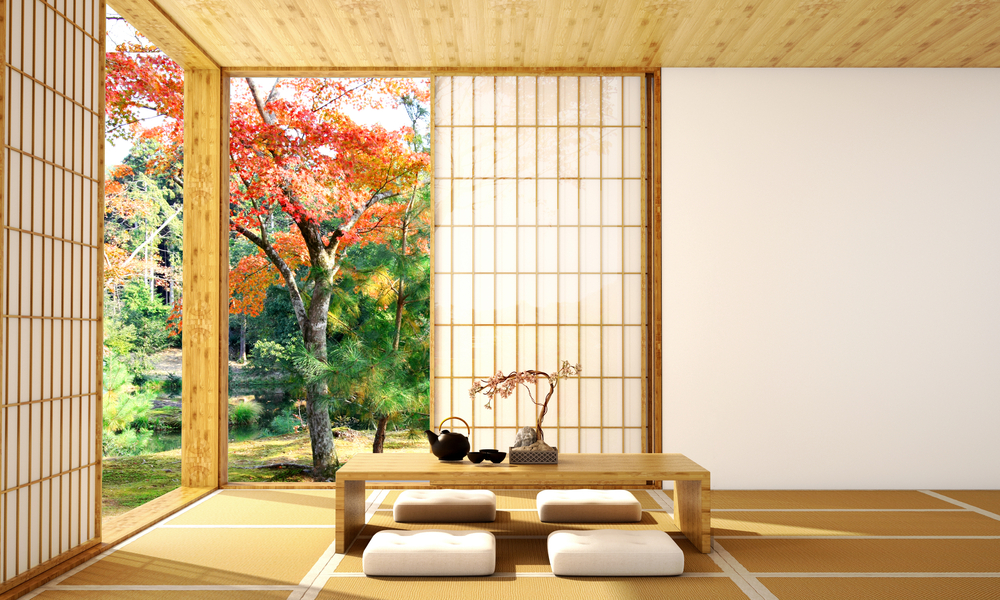
Accommodation is more expensive in Japan
The Japanese options like Ryokan and Minshuku are usually family-run places. They usually provide breakfasts and dinners with your room fee. They also feature typical Japanese elements like sliding doors and tatami flooring.
Japan also has its famous ‘love hotels’ as well as themed hotels. There are also capsule hotels with very small sleeping pods in Japan. You can find a few of these pod hotels in China too. Overall, Japan has more options but higher prices.
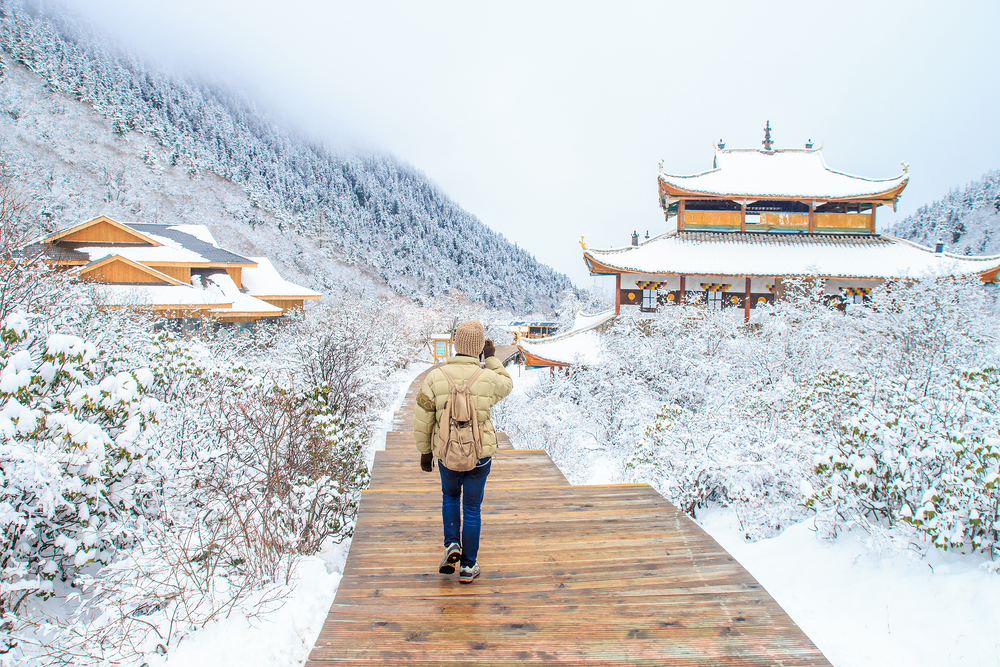
Snow season, China
What’s the weather like in Japan vs China and when is the best time to visit these countries?
| China | Japan |
|---|---|
| The best times to visit China, weatherwise, are in the spring from April to May and in the autumn from September to October. It is important to note that much of China doesn’t vary drastically from one season to the next so it won’t affect your travels. | Japan on the other hand has very hot summers and very cold winters so the best time to visit would be right in between the two, from March to May and September to November. |
Sometimes, we have to plan our vacations at certain periods of the year. This can be due to a variety of reasons like school and work. It can affect the destinations we choose, as the weather conditions can vary a lot throughout the year.
One advantage of China is its size. Since it’s such a large country, you can always find warm and sunny places. Southern China is always sunny, with lots of hot days and summer-style activities. If you prefer cooler weather, the northeastern part of the country has cold, snowy winters.
There are even special winter and ice festivals in the northern regions of China. So, there’s never really a bad time to visit. Plus, with China being so vast, you don’t need to worry about huge crowds of tourists everywhere. You can always find a place that is less busy than the others.
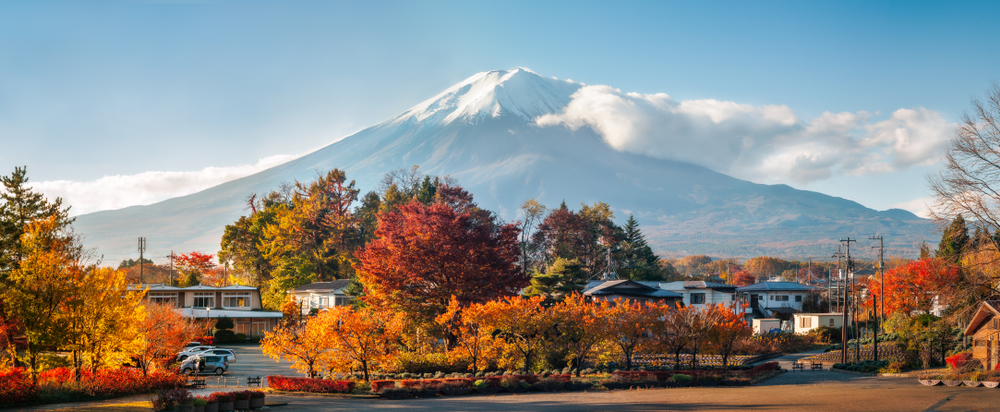
Mount Fuji
In Japan, it’s a bit of a different story. Japan is much smaller than China and mostly has the same weather all over. It has four distinct seasons like many other countries. In winter, Japan can have a lot of snow and quite cold temperatures.
Springs and falls are quite mild in Japan. Summers can be warm, but not especially hot unless you’re visiting the southern parts. Many people flock to Japan during the ‘shoulder months’ on either side of the summer-like April, May, September, and October.
April is very popular in Japan. This is when ‘cherry blossom season’ occurs in which Japan’s famous cherry trees blossom beautifully with lots of pink petals. This is a great time to visit, but it’s very busy. If you want to avoid the crowds and still get mild temperatures, May and early fall are the best moments.
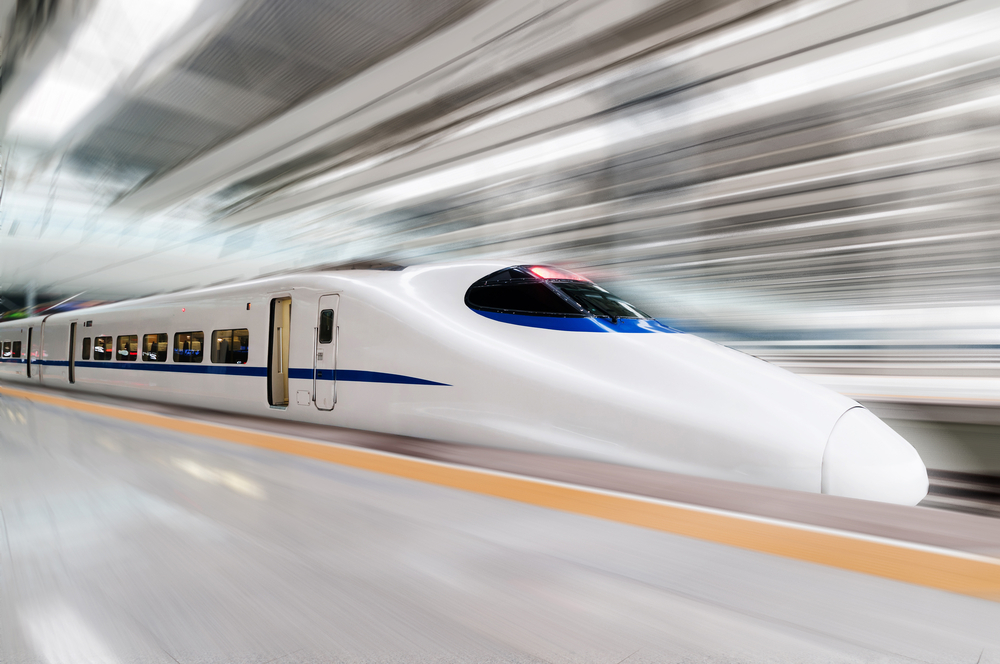
Japan leads the world in its public transport
What’s the best way to get around when visiting China or Japan? How good is public transportation in each country?
Japan leads the world in its public transport. The nation is famous for its ‘bullet trains‘. These trains are the fastest in the world. They move at incredible speed and they’re always on time. This makes getting around Japan very simple. You can travel between cities and even hop around the different islands with ease.
In cities like Tokyo, the metro systems also make it easy to get around. You need to be careful on the streets, however. Jay-walking is often punished and the streets can be super busy. The rules are strict and there are even special agents to push people into trains during rush hour periods. This means that getting around Japan is easy but can be quite stressful.
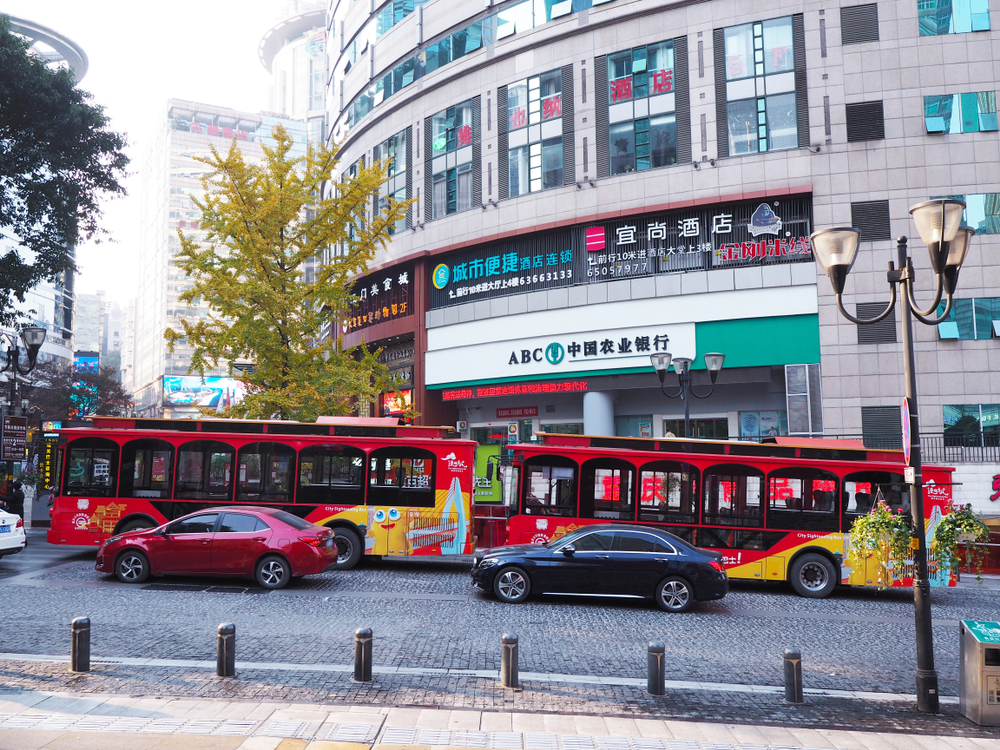
China public transport
In China, things are much more relaxed. Since the country is a lot bigger, journey times are longer. You might not be able to hop around and see all the cities you want to see during just a one or two-week trip. However, if you do choose to travel, the trains are reliable. They’re quite old and conventional, lacking the modern amenities of modern alternatives.
There are, however, new Chinese bullet trains that are helping to speed up transport across the nation. You can also find cheap domestic flights between big cities around China too. Also, the rules for walking around are more relaxed. You won’t get stopped or punished for jay-walking in China. People move more freely and casually around the cities. This helps to provide a more laid-back pace of life.
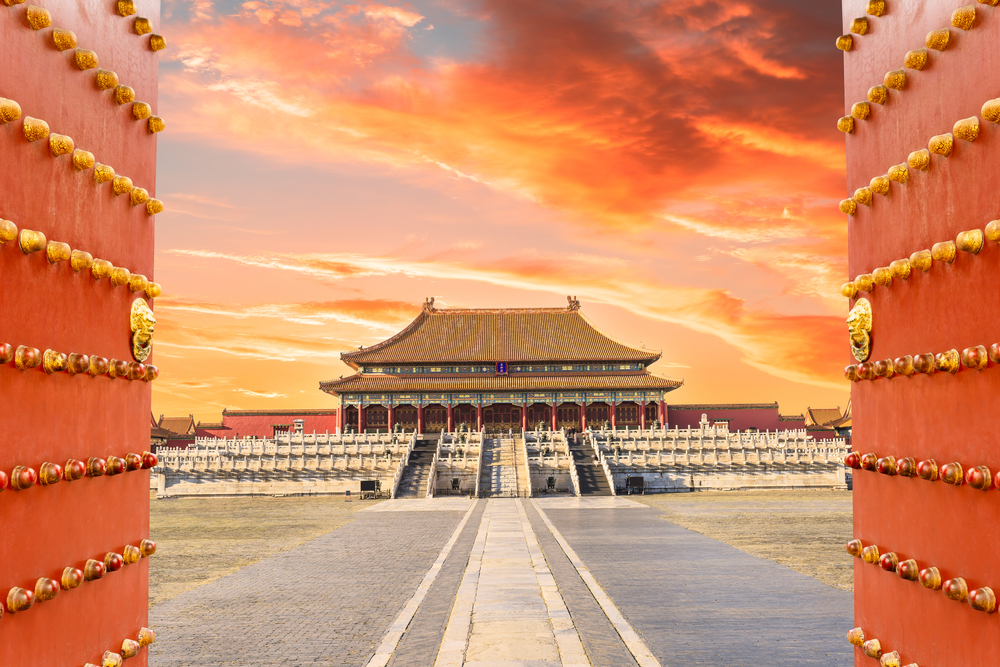
Forbidden City in Beijing, China
What are the most beautiful places in Japan vs China (other than the obvious Beijing or Tokyo)?
| China | Japan |
|---|---|
| Shanghai | Tokyo |
| Beijing | Osaka |
| Chongqing | Hakone |
| Tianjin | Kobe |
| Guangzhou | Yokohama |
China and Japan have unique features and experiences to offer their visitors but both are equally as beautiful a destination as one might expect.
For a small nation, Japan has some strikingly diverse landscapes ranging from golden-sand beaches lined with palm trees to snow-capped mountains that tower high into the sky. If you’re looking to spend your time in a picturesque village that transports you to another era, then Hida-Takayama or “Little Tokyo” as it is lovingly called, is the place for you. Oozing with old-fashioned Japanese charm, this mountainside destination houses a historic district lined with traditional-style wooden buildings. You can walk through the riverside market located on the foothills of the mountainside or relax with some sake in a classic Japanese-style inn. If you’d like to spend time outdoors but away from the hustle and bustle of the city, then head to the rolling forest landscape of Kamakura. Less than an hour’s drive away from Tokyo, Kamakura has everything you need for a quick getaway. You can spend your time there relaxing on sandy beaches, wandering through old wooden homes filled with charm, or taking in all of the centuries-old Buddhist temples and historical shrines and museums scattered around the city. Other not-so-obvious places of interest that are worth exploring in Japan are the lavender fields of Furano, the active volcano in Kagoshima, and the hot springs of Hakone.
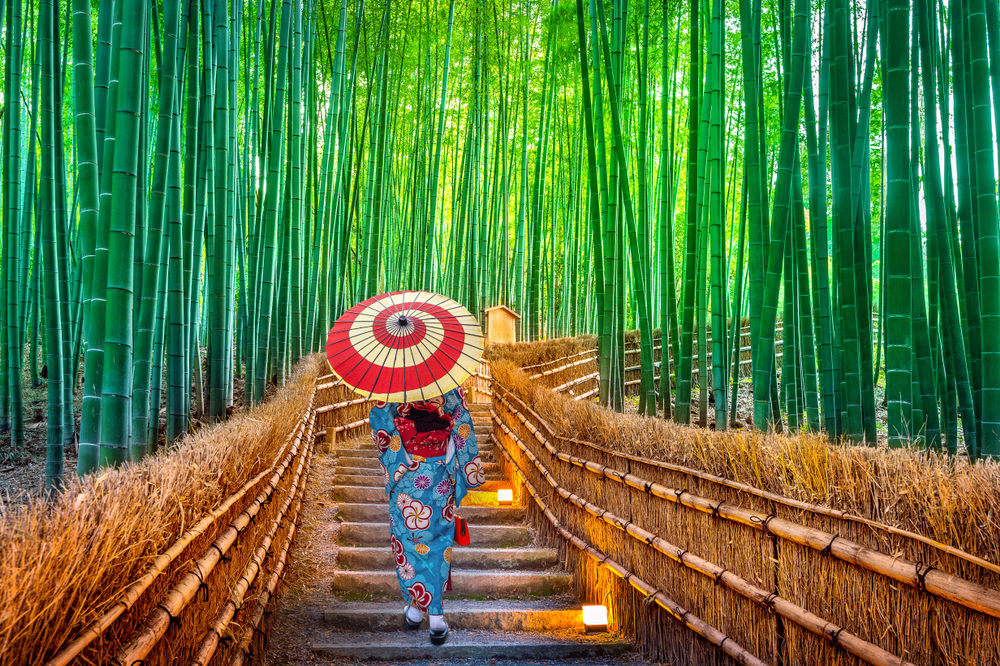
Arashiyama forest
China is about 25 times bigger than Japan, meaning there is much more land to explore. Each corner of the land is different and diverse and offers so much variety for tourists. Zhouzhuang is a beautiful water town that is often considered the “Venice of the East”. The 900-year-old town is filled with pretty waterways and charming stone bridges and let’s not forget historic attractions like Zhang Ting – a sprawling residence dating back to the Ming Dynasty with over 70 rooms and 6 courtyards. Afterward, spend your holidays in the mist-shrouded foothills of the Huangshan Mountain in the ancient Anhui village of Hongcun. You might recognize your surroundings from the famous Hollywood movie, Crouching Tiger, Hidden Dragon. Much of the village is recognized on the list of UNESCO World Heritage Sites; check out some of the finest examples of architecture dating back to the Ming and Qing Dynasty or take in the ornate stone and wood carvings at the Chengzi Hall Museum. Other places of interest in China to keep in mind include the Three Pagodas of Chongsheng Temple in Dali, the breathtaking coastline views of Gulangyu Island, and the idyllic town of Tongli.
Is China safer than Japan or vice versa?
China vs Japan is generally both very safe countries to visit and have never been recognized otherwise such as places like Brazil or Columbia. The chances of a traveler coming across any issues are extremely low and you’ll most likely enjoy your entire vacation without a single incident. Though tourism-related crime is very low in both countries, it is important to note that Japan also has a much lower crime rate in general and is safer overall.
Staying safe while traveling should be your number one priority and both China and Japan have proven to be amazing destinations of choice. While visiting either of these countries you don’t have to worry about your things being stolen, your hotel room being broken into, or anything drastic like being mugged or robbed. Travelers have also shared how safe they feel walking alone in both the daytime and at night in several research studies.
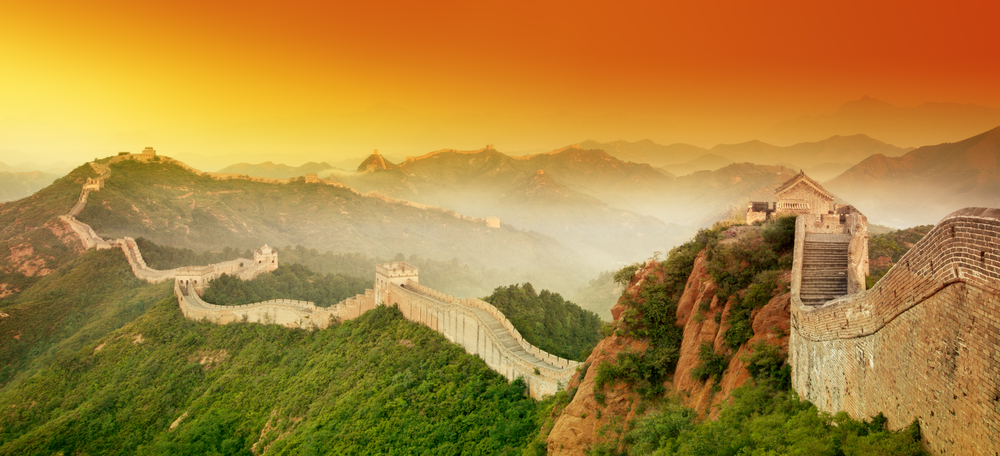
Great Wall of China
Are there more fun things to do in Japan vs China? What are the best attractions in China and Japan?
| China | Japan |
|---|---|
| The Great Wall of China | Mount Fuji |
| Forbidden City | Fushimi Inari Taisha Shrine |
| Emperor Qinshihuang’s Mausoleum Site Museum | Kinkaku-ji Temple |
| The Bund | Tokyo Skytree |
| Summer Palace | Arashiyama Bamboo Forest |
| Tiananmen Square | Universal Studios Japan |
| Tokyo DisneySea |
So, what can you actually do in China vs Japan? The activities and attractions of these two Asian culture countries are very unique and special. China is home to one of the most iconic landmarks in the world: The Great Wall of China. A long, historic, incredible wall, the Great Wall is an amazing place to visit.
There are lots of temples and historic hotspots in China. The country has a lot of appeal for history buffs and culture lovers. You can check out the Forbidden City, Emperor Qinshihuang’s Mausoleum, the Temple of Heaven, and Tiananmen Square. So, what can you actually do in China vs Japan? The activities and attractions of these two countries are very unique and special. China is home to one of the most iconic landmarks in the world: The Great Wall of China. A long, historic, incredible wall, the Great Wall is an amazing place to visit.
You can also explore beautiful natural spaces like Jiuzhai Valley National Park and the Tiger Leaping Gorge. There are also some vibrant inner-city areas like Nanjing Road in Shanghai or Wangfujing in Beijing.
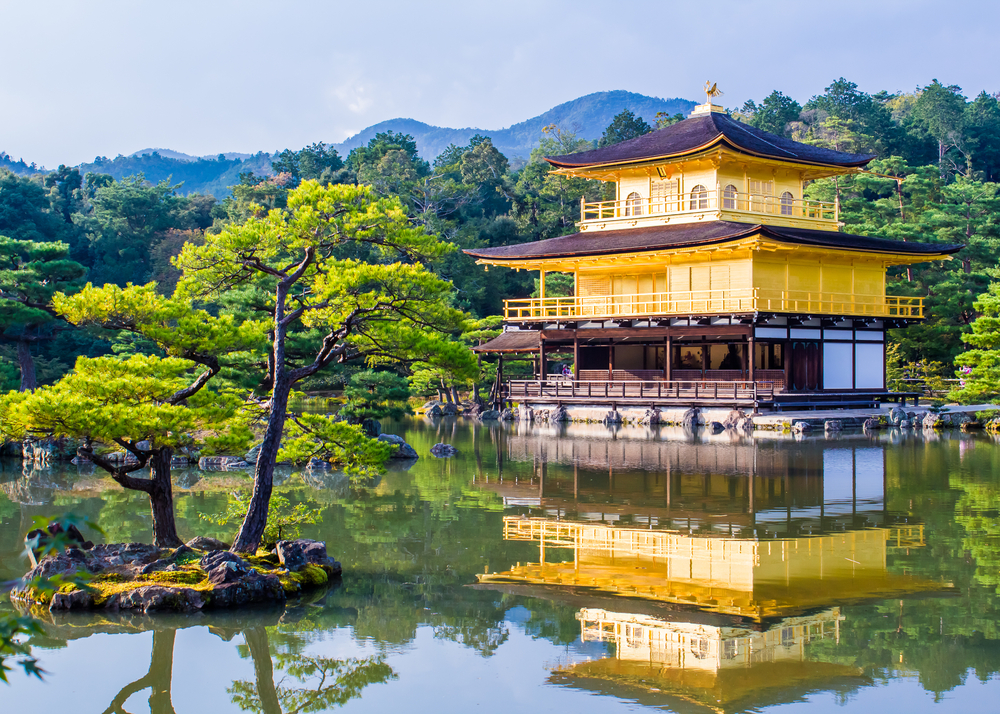
Kinkaku-Ji, Buddhist, Temple In Kyoto
Japan also has a lot of historic and traditional sites. Examples include the Fushimi Inari Taisha Shinto shrine and the Kiyomizu-dera temple. The Senso-ji temple is another popular site and Osaka Castle is a must-visit location.
Japan also has a lot of beautiful natural areas. Arashiyama forest is very famous for its monkeys and bamboo shoots. Travelers can visit Mount Fuji, snapping photos from afar or actually hike up the mountain with their friends.
The big city of Tokyo can almost be considered an attraction too. It’s a city like no other. It has its own Disneyland, entire neighborhoods dedicated to arcade games and anime, theme restaurants, and much more. You can visit old shrines one moment and modern skyscrapers the next.
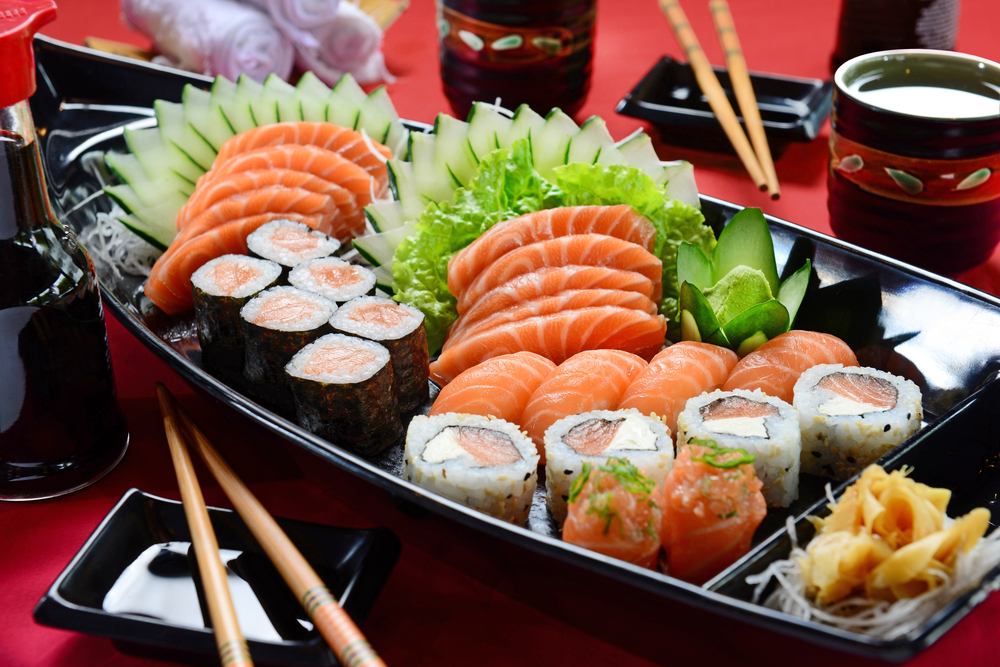
japanese food
What are the traditional foods and drinks you must try when in China vs Japan?
| China | Japan |
|---|---|
| Hotpot | Ramen |
| Sichuan pork | Okonomiyaki |
| Shrimp with vermicelli and garlic | Udon |
| Dumplings | Sushi |
| Chow Mein | Yuba |
| Peking Roasted Duck | Sake |
Many people travel to enjoy new foods and drinks. It can be thrilling to visit a different country and enjoy brand new flavors. It’s always exciting to try local delicacies and traditional dishes too. So how do the cuisines and culinary styles of Japan vs China stack up?
Well, we’ve already mentioned that food is cheaper in China. It’s also probably a little less healthy overall. A lot of Chinese dishes are prepared in woks and fried. They often involve a lot of oils and sauces. You’ll find almost everything served with noodles and rice in China.
Many people are familiar with Chinese foods in their own countries, so you can find dishes you know while exploring China. The quality can vary greatly, depending on where you dine. Out in the rural areas, you might discover local restaurants and unique traditional delicacies. The big cities have major fast food chains and restaurants of different styles. It’s not too hard to find amazing food in China.
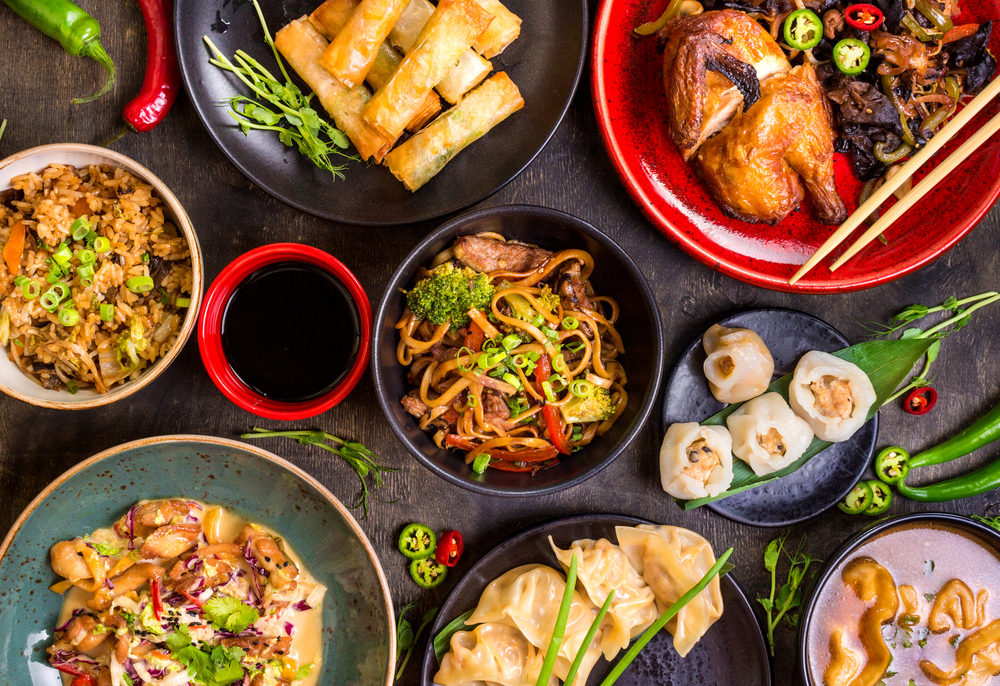
chinese food
The same can be said for Japan as well. Japanese cuisine involves less reliance on sauces and oils. Many foods are actually served raw in Japan. There’s a big focus on seafood. You’ll find lots of sushi and fish dishes in typical Japanese restaurants. Japanese chefs use special flat pans called teppans that allow them to grill food on the outside and keep it raw in the center.
This technique can create some really unique flavors. However, if you’re picky about food and don’t like eating things raw, you might not like Japanese cuisine so much. Fortunately, big cities like Tokyo have all kinds of restaurants offering Italian, French, American, Korean, and other styles of cuisine too.
What should I pack when going to China or Japan?
Other than the usual things you’d pack whilst traveling, there are some specific things to take to China vs Japan that will prove to be useful during your trip. One thing to remember while packing your clothes though is that washing machines are very common in China and Japan but dryers are harder to come by. Unless you’re staying at a place with full laundry facilities, you’ll want to pack clothes that air dry quickly. Also, if you’re going to China, you might want to keep in mind exactly where you’re going in the country. Because China is so large and expansive, you may come across freezing cold snowstorms and hot desert landscapes all in one 10-day-long holiday. There is a drastic difference in sizes compared to the United States and in China or Japan so pack everything you need clothes-wise; a medium in ladies’ clothes is probably a large or extra-large at shopping malls there.
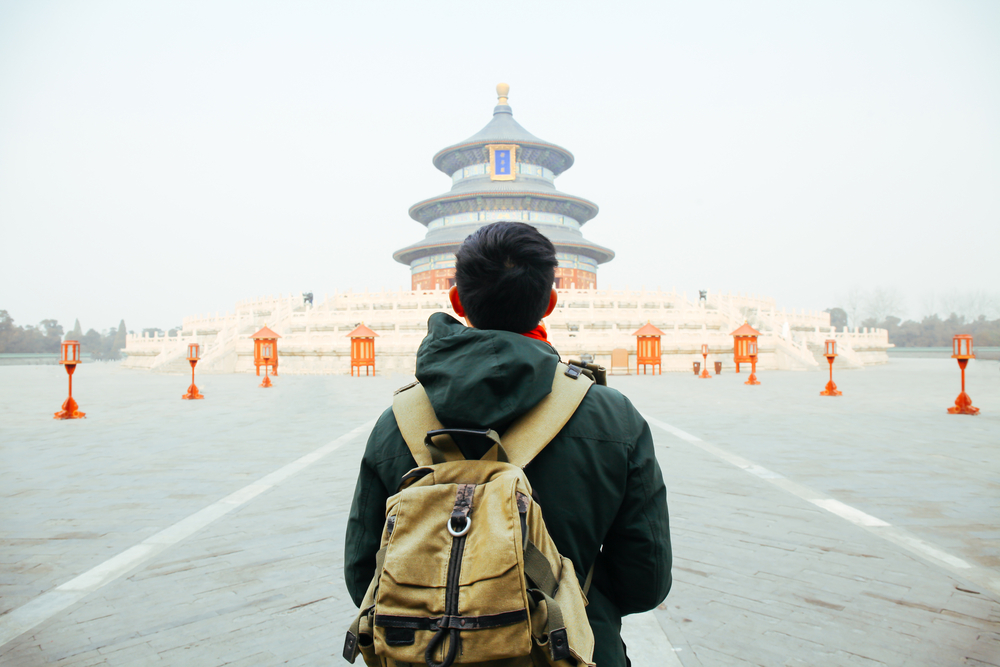
Major metropolises like Beijing or Tokyo are very westernized and fashionable when it comes to what you’d feel comfortable wearing in public. Though you will likely not be questioned no matter what you wear throughout the country, you may want to keep in mind that many distant villages are more modest in their clothing. This is especially true if you plan on visiting any religious historic sites or temples during your visit so you may want to make sure you have a long skirt wrap, pants, or a shawl to cover any bare shoulders while there. You may also want to pack warm pajamas since central heat won’t be found in many places.
Other general things to pack when visiting Japan vs China include a convertible charger, personal toiletries, and any medicines you need on a regular basis.
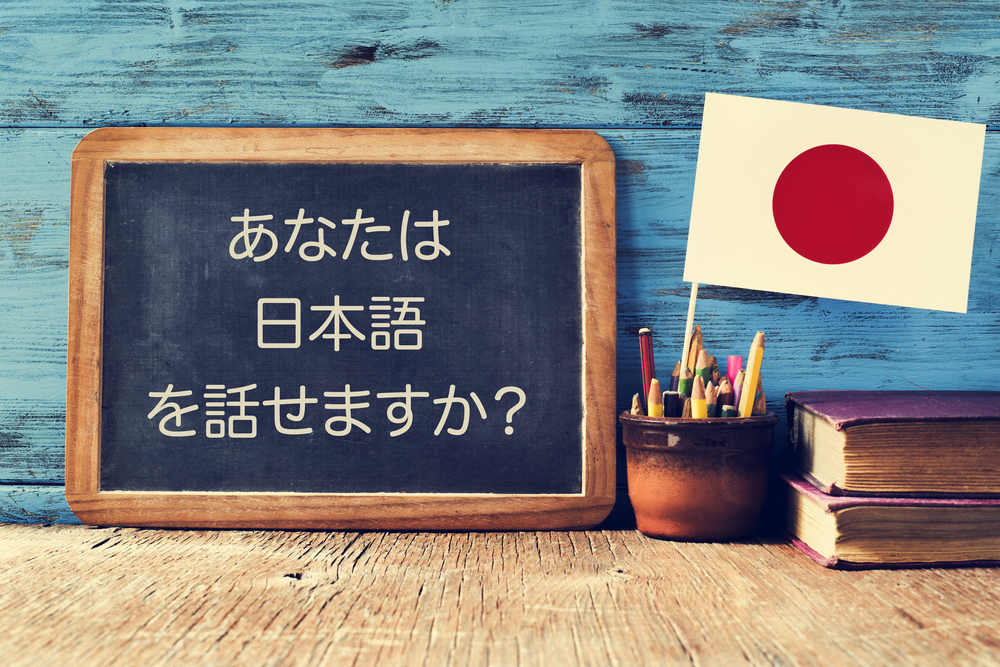
What languages will I come across in Japan vs China?
| China | Japan |
|---|---|
| Mandarin | Japanese |
| English | English |
| Hunanese | Ryukyuan languages |
| Cantonese | |
| Hakka Dialect | |
| Wu Dialect |
When in major cities, you will most likely be able to communicate with store vendors and others that you come across in English. Both countries have a strong focus on education and you’ll find that most people can speak English perfectly. That being said, it’s best to remember that you are the foreigner on their land and that you should respect whatever language locals choose to communicate in. In China, the official language is Mandarin and more than 70% of the population speak it. There are other major dialects you may come across like Hunanese, Cantonese, the Hakka dialect, or the Wu dialect.
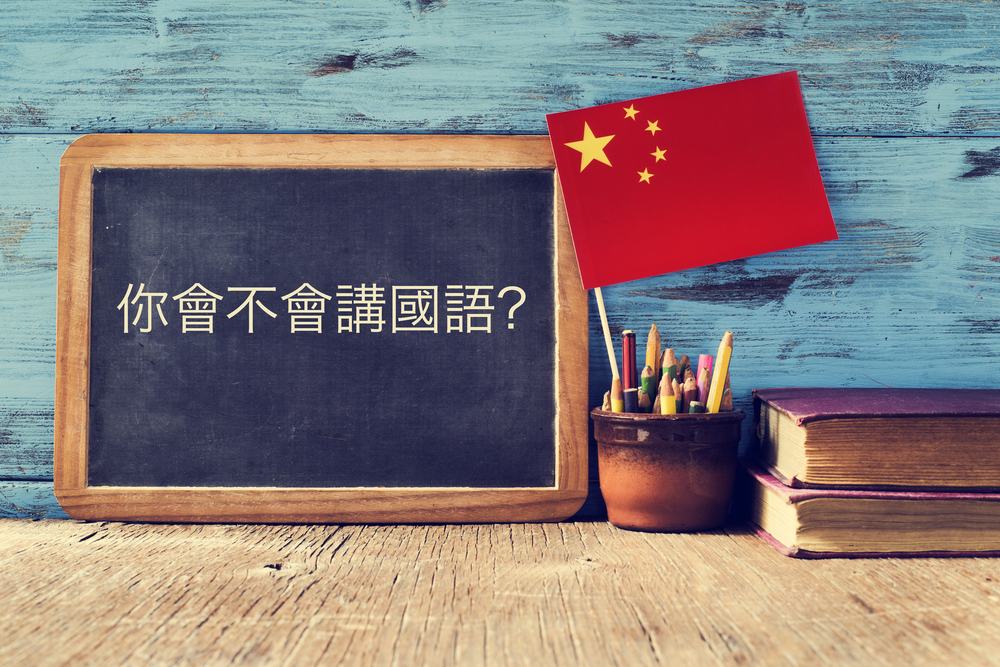
Japanese is the widely spoken language throughout Japan though there are many different dialects throughout; the dialect spoken in Tokyo is considered standard Japanese. You may also come across 14 different Ryukyuan languages spoken in Okinawa and neighboring Ryukyu islands.
Keep in mind that internet usage is restricted in both countries and that you may want to download a translator app before your travels to help you communicate what you need. You can use one of these many language learning apps that have been tried and tested by fellow travelers.
What unique customs should I be aware of while in China vs Japan?
There are certain Japanese vs Chinese customs that might shock foreigners but are considered the norm in that part of the world. It’s always best to know what you’re walking into before deciding which country you want to travel to.

Japan it’s considered rude to blow your nose in public
For example, in Japan it’s considered rude to blow your nose in public – so if you’re usually a little sniffly, you may want to opt for China instead. You may also notice that you don’t come across the number 4 a lot. Many hotels don’t have a room number 4 or restaurants don’t have a table number 4. This is because many Japanese are highly superstitious and believe that the number four is bad luck – similar to how we view the number 13 in the United States. Speaking of restaurants, the Japanese believe that it is preposterous to pour your own drink – you just have to hope that the person or people you’re with (or the waiter or waitress) notice that your glass is empty and pour it for you.
There are some Chinese customs you’re sure to come across during your travels that will surprise you as well. For example, don’t be appalled when other diners let out a huge burp after a hearty meal – it’s considered a sign of gratitude and appreciation for the food that was served. While in a restaurant in China, know that it is inappropriate to place your chopsticks upright in a bowl of rice; similarly, don’t wave them around when making hand gestures. While tipping is common in major cities, it is considered impolite and offensive in other parts of the country.
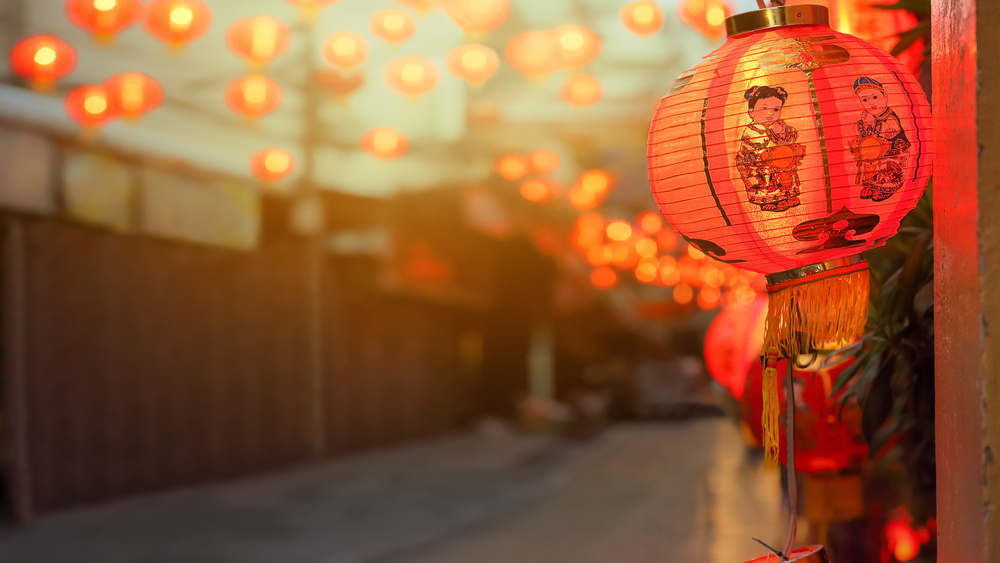
Which Japanese festivals should you attend? Which Chinese festivals are the most fun?
| China | Japan |
|---|---|
| Chinese New Year | Yuki Matsuri (Sapporo Snow Festival) |
| China’s Lantern Festival | Omizutori (Sacred Water Drawing Festival) |
| Qingming Festival | Gion Matsuri |
| Dragon Boat Festival | Aomori Nebuta Matsuri |
| Double Seventh Day | Kishiwada Danjiri Matsuri |
| Chinese Mid-Autumn Festival |
China and Japan are full of so much culture and tradition and being a part of it is an experience that visitors cherish for the rest of their lives. If none of the other aspects are deal breakers when choosing either one or the other, you may want to pick whether to visit China or Japan based on what festivities are occurring at the time.
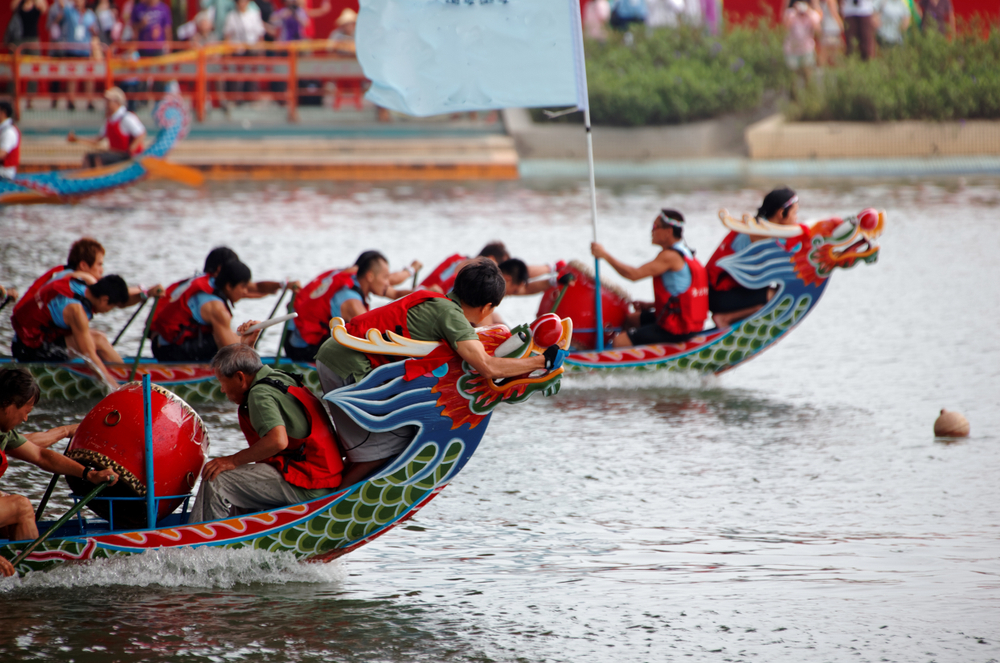
Dragon Boat Festival
In Japan you’ll want to attend the Gion Matsuri in July; the festival is considered the mother of all Japanese festivals and lasts the entire month. You’ll see float processions, parades in costume, and much more. Another Japanese festival you won’t want to miss is Yuki Matsuri, which is also known as the Sapporo Snow Festival and happens for an entire week in either January or February. There’s tons of cultural shows and concerts and an intricate snow and ice sculpture competition that attracts over two million visitors each year.
Whilst in China it’s the annual Chinese New Year celebrations that you’re not going to want to miss. It lasts around 15 days and has many activities like detailed fireworks displays, dragon dances, dumpling workshops and stands, and so much more. The Lantern Festival is traditionally held on the last day of the New Year and is something you’re going to want to schedule your travel decisions around.
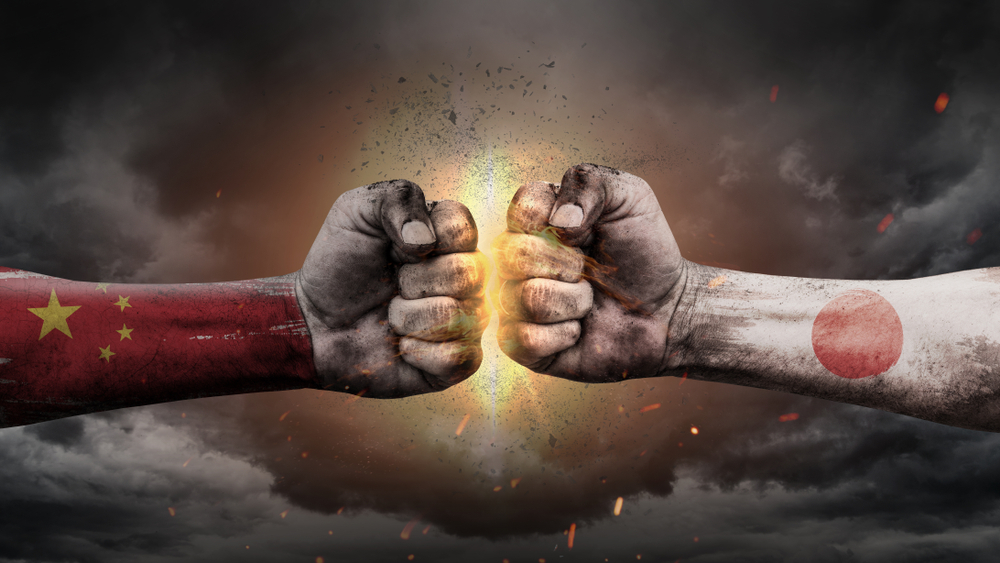
Final Verdict of China vs Japan – Is China or Japan the better country to visit?
Ultimately, both Japan vs China are amazing vacation destinations and travel sites. The right choice for you depends on your personal preferences and tastes. Your budget is also another big factor to consider. If you want to get the best value from your trip and make every dollar count, China is the best choice. Food, accommodation, travel, and activities are all cheaper in China.
China also has some truly iconic landmarks and monuments like its Great Wall. However, Japan has the thrilling metropolis of Tokyo and dozens of ancient temples too. The quality of life is also better overall in Japan. Many Westerners enjoy the high standards of public transport and dining in places like Tokyo and Kyoto.
China has the advantage of its size and weather. You can visit at almost any time of the year and have a terrific time. Japan is also enjoyable throughout the year, but tourists will need to cope with cooler weather and snow in winter. In the end, the choice is yours. Whichever country you choose, you can make a lot of happy memories there.
If you like this and you have some suggestions and advice on posts about Japan vs China let us comment below. 🙏
Short FAQ: Japan vs. China – Choosing the Best Travel Destination
- Japan or China – Which is a better travel destination?
Both Japan and China offer unique experiences, catering to different preferences. Your choice depends on what you’re seeking in a travel adventure.
- What makes Japan a great travel destination?
Japan boasts a rich cultural heritage, stunning landscapes, advanced technology, and a blend of old and new. From serene temples to bustling city life, it’s a perfect mix of tradition and modernity.
- What does China offer as a travel destination?
China is a vast country with diverse cultures, historical sites like the Great Wall and Terracotta Army, delicious cuisine, and picturesque landscapes, including the Yangtze River and the karst mountains of Guilin.
- Which country is more culturally immersive?
Both Japan and China offer unique cultural experiences, but China’s vastness lends itself to diverse cultural encounters, while Japan’s smaller size allows for a deeper dive into specific aspects of its culture.
- What are the must-see attractions in Japan?
Don’t miss Kyoto’s temples, Tokyo’s neon-lit streets, Mount Fuji’s iconic beauty, and Hiroshima’s Peace Memorial Park for historical significance.
- What are the iconic attractions in China?
The Great Wall, Forbidden City, Terracotta Army, Li River, and the vibrant city of Shanghai are some of China’s top attractions.
- Is safety a concern in either country?
Both Japan and China are generally safe for travelers. However, travelers should still exercise common sense and be aware of local customs and regulations.
- Which country is more suitable for food enthusiasts?
Both countries have rich culinary traditions. Japan is known for sushi, ramen, and delicate flavors, while China offers a vast array of regional cuisines, including Sichuan, Cantonese, and Peking duck.
- How accessible are these destinations for English speakers?
In major tourist areas, you’ll find English signage and some locals who speak English in both Japan and China. Learning a few basic phrases can enhance your experience in either country.
- What’s the best time to visit Japan and China?
Spring (March to May) and autumn (September to November) are generally pleasant times to visit both countries, with milder weather and colorful scenery.
- Can I experience traditional culture in modern settings?
Absolutely. Japan’s ryokans and tea ceremonies and China’s preserved ancient towns like Pingyao offer authentic cultural experiences amidst modern surroundings.
- How do transportation options compare between the two countries?
Both countries have efficient public transportation systems, including high-speed trains. Japan’s rail network is known for punctuality, while China’s extensive rail system connects major cities.
- Which destination offers more natural beauty?
Japan boasts cherry blossoms, hot springs, and lush gardens, while China’s diverse landscapes encompass deserts, mountains, and rivers.
- Are there hidden gems in both countries that are less touristy?
Yes, for example, Japan’s Tohoku region and China’s Yunnan province offer off-the-beaten-path experiences with stunning landscapes and authentic culture.
- What’s the overall budget range for trips to Japan and China?
Costs vary based on factors like travel style, duration, and location. Japan can be slightly more expensive due to its higher cost of living.
Remember, the “best” destination depends on your interests, preferences, and the experiences you seek. Both Japan and China offer remarkable journeys; your choice should be based on what resonates most with you!
And we suggest you read a very interesting comparison between two rival countries: Turkey vs. Greece: Which is best to travel?
Interesting infographic about Japan vs China:
